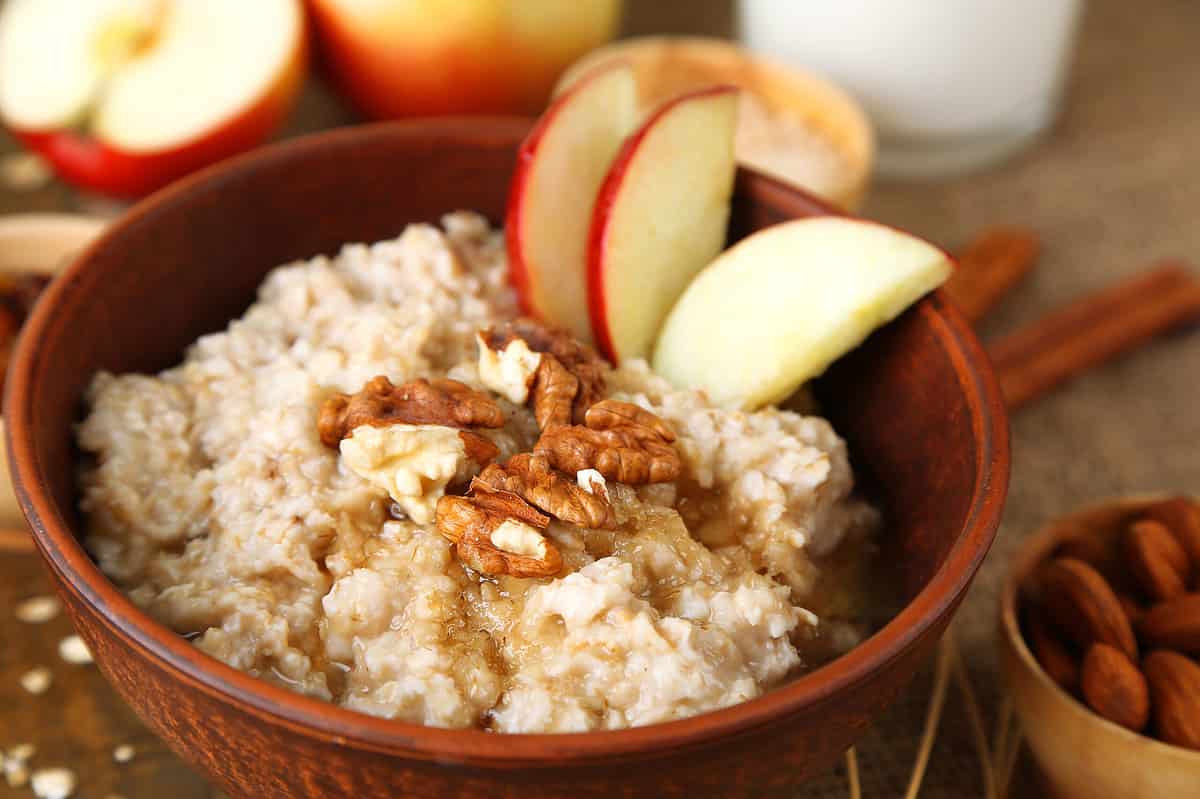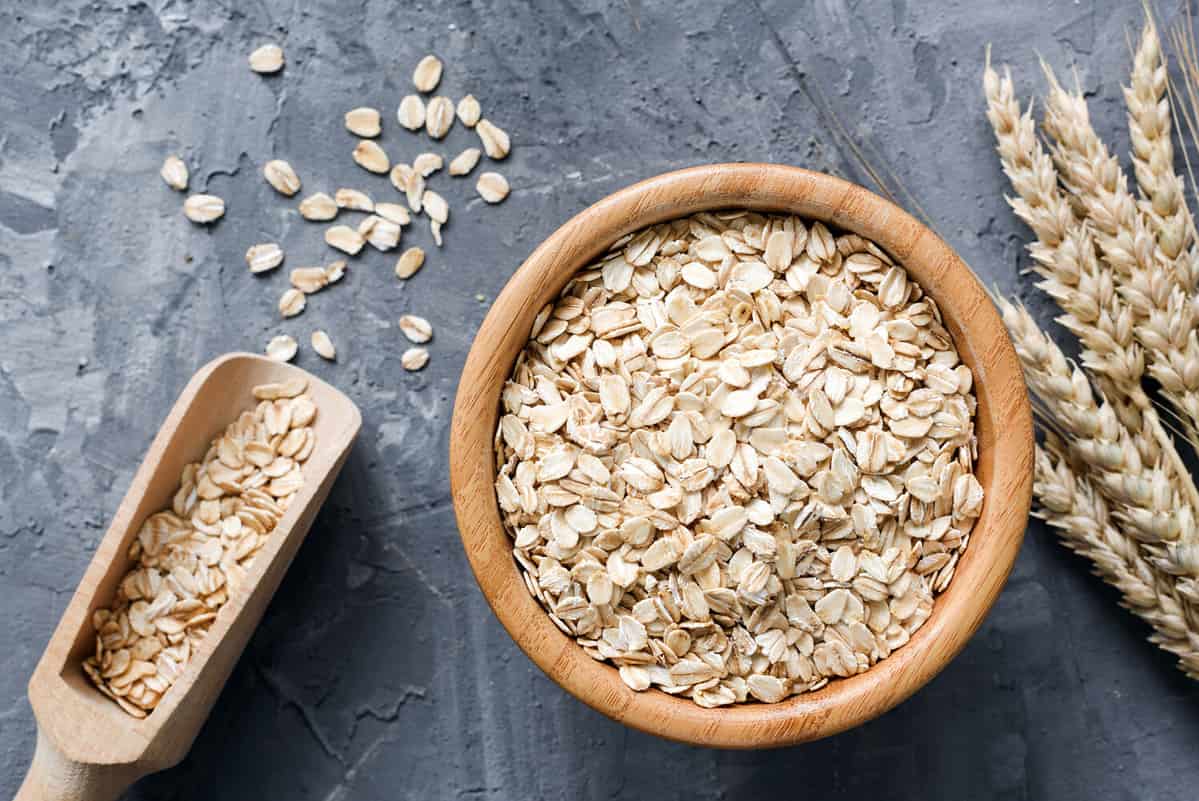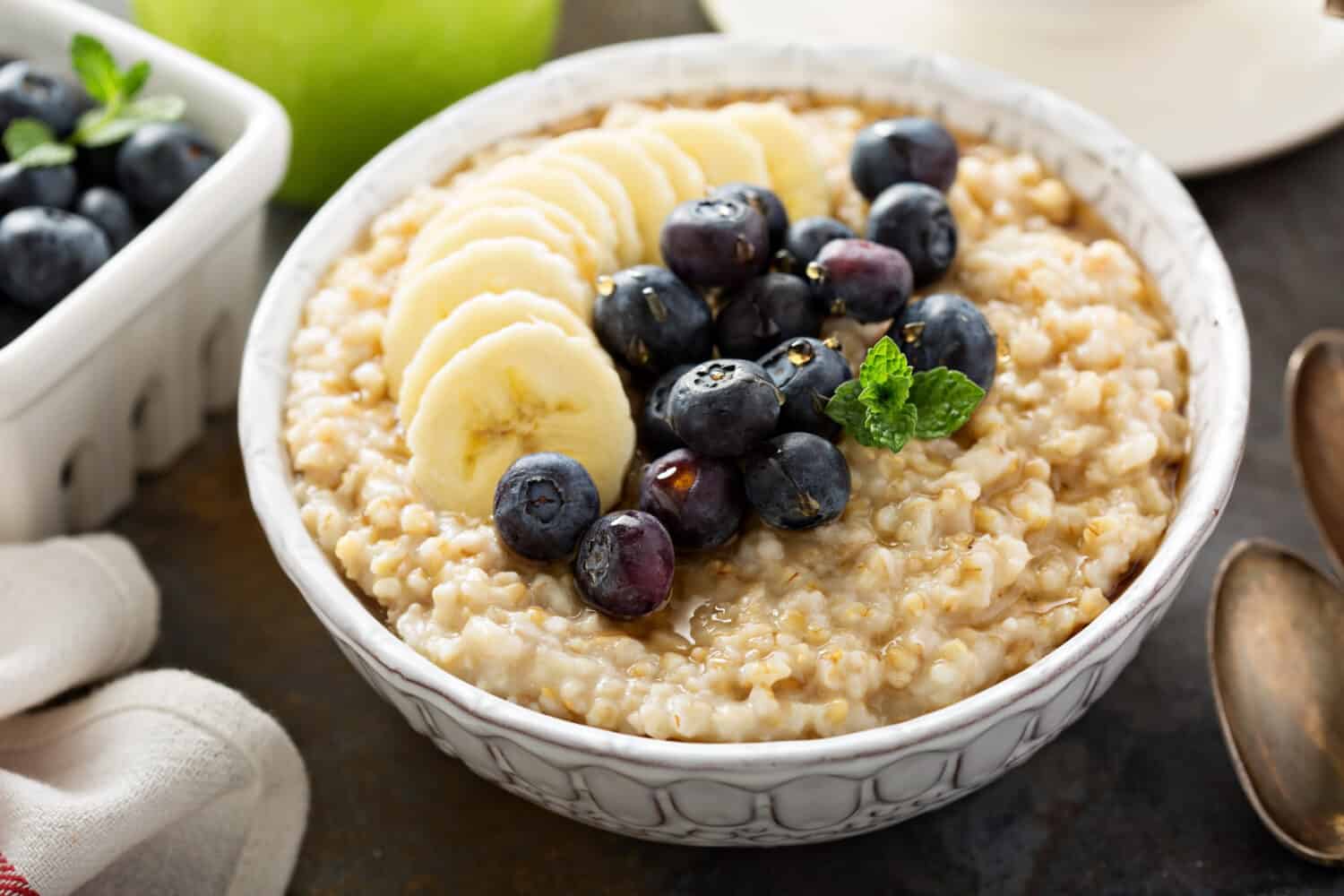Oats are known to be some of the healthiest grains that we have on earth. They offer important minerals, vitamins, and antioxidants that we need. Most commonly, oats are consumed as oatmeal. For this consumption, the husks of the oats are removed, and then they are steamed and flattened. When prepared like this, they can also be used to make flapjacks, oatcakes, granola, and more. When oats are prepared as oatmeal, it can be very healthy for you. Let's find out more about oatmeal, its nutritional information, and its health benefits and risks.
What Is Oatmeal?
Oats, also known as Avena sativa, are a whole-grain food. Oats are commonly used to make oatmeal as a breakfast food. Oatmeal is made by boiling oats in milk or water. Oatmeal, at times, is also referred to as porridge. Steel-cut oats or rolled oats are most commonly used to make oatmeal.

©Africa Studio/Shutterstock.com
Nutritional Information
To understand the nutritional facts about oatmeal, we'll take a deeper look into oats. Oats are well-balanced and are a good source of protein, carbs, fiber, minerals, vitamins, and antioxidants. They are rich in manganese, phosphorus, magnesium, copper, iron, zinc, folate, Vitamin B, calcium, and potassium. In one cup of cooked oatmeal (which contains half a cup of dry oats and water), you'll get 27.4 grams of carbs, 5.3 grams of protein, 2.6 grams of fat, 4 grams of fiber, and 153.5 calories.
Health Benefits
Lower Blood Pressure
One of the health benefits of oats comes from its antioxidant content. Since oats are rich in antioxidants, research shows they help lower blood pressure. The antioxidants in oats are called avenanthramides. Avenanthramides increase nitric oxide gas levels, this gas causes blood vessels to open, which helps blood flow more efficiently. Avenanthramides also have anti-inflammatory properties.
Lower Blood Sugar
Oats also contain a large amount of soluble fiber called beta-glucan. Beta-glucan is good for your gut health because it dissolves and forms a gel-like solution that helps to reduce blood sugar and increase the growth of healthy bacteria. It can do this by delaying the stomach from emptying so that sugar is absorbed more slowly. This, in turn, helps regulate type 2 diabetes.
Lower Cholesterol
Another health benefit oats have is lowering cholesterol. This is important as heart disease is one of the leading causes of death in the world. Oats can help with cholesterol because of their beta-glucan content. Beta-glucan increases the amount of cholesterol-rich bile that is released so that less cholesterol is circulating in the blood. It's important that bad cholesterol, LDL, is lowered so as not to cause strokes or heart attacks.
Relieve Constipation
Studies have shown that the outer layer of the oat grain, called bran, can help reduce constipation. It has also been shown that it can improve digestion for people who have ulcerative colitis. But, it's important to note that it can only help improve constipation that is caused naturally. It can not be used to help constipation caused by opioids or other drugs.
Aid In Weight Loss
Oatmeal is a great breakfast food because it is filling, and this can actually help aid in weight loss. When you eat foods that are filling, it will make you feel full for longer, which can cause you to eat fewer calories. Not only does it help you make you feel full, but the beta-glucan can also increase a hormone called peptide YY. This hormone is made in the gut when you eat. The presence of this hormone is shown to be responsible for reducing calorie consumption and can help lower the risk of obesity.

©Vladislav Noseek/Shutterstock.com
Consuming More Oats
If all of these benefits sound appealing to you, you might be wondering how you can increase your consumption of oats! Well, the most popular that we've talked about today is oatmeal. It's very simple to make and only requires boiling the oats in milk or water. It is important that when you make oatmeal, you don't dress it up too much so that it's no longer healthy. Be sure not to add too much extra sugar. Common healthy ways to dress up oatmeal include adding fruit like raisins, strawberries, or blueberries, as well as cinnamon and other spices.
Another way to increase your oat consumption is to eat granola bars. Making granola bars at home is really easy, and you can control what goes into them so that they stay healthy without additives and other ingredients you might not like.
Conclusion
Overall, oats offer many health benefits that can be helpful for anyone. They are packed with essential minerals, vitamins, antioxidants, fiber, and protein. They can help in lowering blood pressure, blood sugar, and cholesterol while also helping to relieve constipation and aid in losing weight. So, if you don't currently consume oats or oatmeal in your daily diet, it's a great food to add in!
The image featured at the top of this post is ©Elena Veselova/Shutterstock.com.

